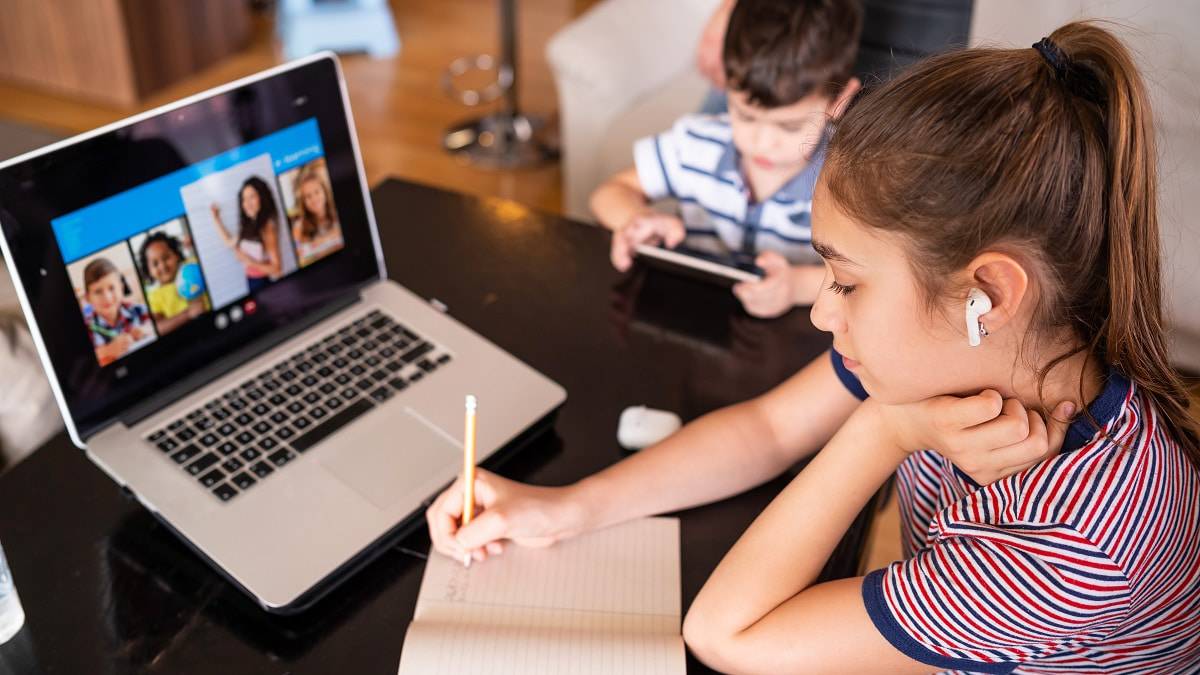Virtual classes took many parents by surprise, but this year will be different. You know if your child will be at home or in school ahead of time and you have some experience under your belt. Make the experience better for everyone by learning how to up your school-at-home game this year.
Even if your kids did just fine with their virtual learning, there are always places for improvement. Your children won’t feel like they’re falling behind while they’re out of the classroom when you assist their education with these helpful tips.
1. Stick With Your Schedule
People often talk about how kids need routines. It keeps families on a schedule, but it also improves your child’s mental health. Experts agree that routines provide comfort during challenging times, especially when the world turns upside down.
After creating a daily schedule, do your best to stick with it. As your kids get used to their new classes and teachers, knowing what to expect every day will ease their anxiety, which might already feel overwhelming because of ongoing global events.
2. Streamline Your Supplies
School systems normally pay for standard supplies that make learning possible. Virtual classes put that financial responsibility on parents, but your budget might not have room for copy paper reams and a steady stream of writing utensils.
Streamline your supply budget by utilizing available technology. Notes apps, e-books and flashcard apps are often one-time or budget friendly purchases that your child can use throughout their academic career. You’ll up your school-at-home game by diving into the latest virtual educational resources.
3. Emphasize Essential Life Skills
There are so many things kids should learn outside the classroom that improve their education. Emphasizing essential life skills teaches children about self-sufficiency by testing how well they handle responsibilities at home. Ask them to do age-appropriate tasks, like loading the dishwasher or walking the dog. As they participate in chores and give back to your family, they’ll take care of their schoolwork with the same efficiency and independence.
4. Play Background Noise
Some children might have trouble focusing during online classes. They associate being at home with play dates and video games, not listening to their teacher. Background noise could improve their focus.
Research shows that fluid and outdoor sounds change brain activity during cognitive tasks by honing the mind into the assignment at hand. Give your child earbuds while they work and see if they feel more confident about completing projects.
5. Incorporate Lessons Into Daily Life
Students might disengage from virtual lectures because they don’t feel like the lessons matter. Try to incorporate what they learn into daily life as much as possible. When they watch the morning news while eating breakfast, point out the cloud formations they just learned during the weather report. Little efforts like that connect their school life to the outside world and inspire them to dive back into their studies.
6. Assist Their Communication
Virtual learning relies on communication. Without it, your child won’t get what they need from their teacher and vice versa. You can’t stand over their shoulder during every minute of the school day, so check in with them regularly about how school’s going.
Send their teachers emails with their questions if your little ones forgot to ask during the day. Work with older kids to ensure they’re answering daily messages, emails and classroom forum posts. They might need your assistance to get into the right habits to promote good communication with their teacher and fellow students.
7. Start Helpful Conversations
In-person and online classes present different challenges. Confident students might feel embarrassed about struggling with new class structures or practices when they flew through each assignment before. It’s critical to address learning barriers early on by creating a safe environment to start the right conversations.
Ask them how school’s going in a casual setting, like while you’re in the car or watching TV. Mention how you used to struggle with similar material so they feel safe. When they know there’s nothing shameful about getting help or asking questions, they’ll do better in school no matter where they learn.
8. Go Over Final Checklists
Most people couldn’t operate without a daily to-do list, but does your child have a checklist they use to complete their school day? Tailor each list to your child’s class. It will become a helpful set of reminders that sets them up for the rest of the week.
After their final class of the day, the checklist should ask them things like:
- If they finished all of their work for the day
- If they know the required homework for each subject
- If there are deadlines in the coming weeks they can start working on
These helpful reflections start habits that foster academic success. They’ll continue working ahead of deadlines and double-checking completed assignments as they get older, ensuring that they’ll rarely miss a project.
Reach Out to Teachers
Teachers and students work as a team, but you’re part of that team too. Reach out to your child’s instructors if you’re unsure how to help them with specific changes to the class structure or reading materials. Combine their advice with tips like these and you’ll up your school-at-home game this year.
